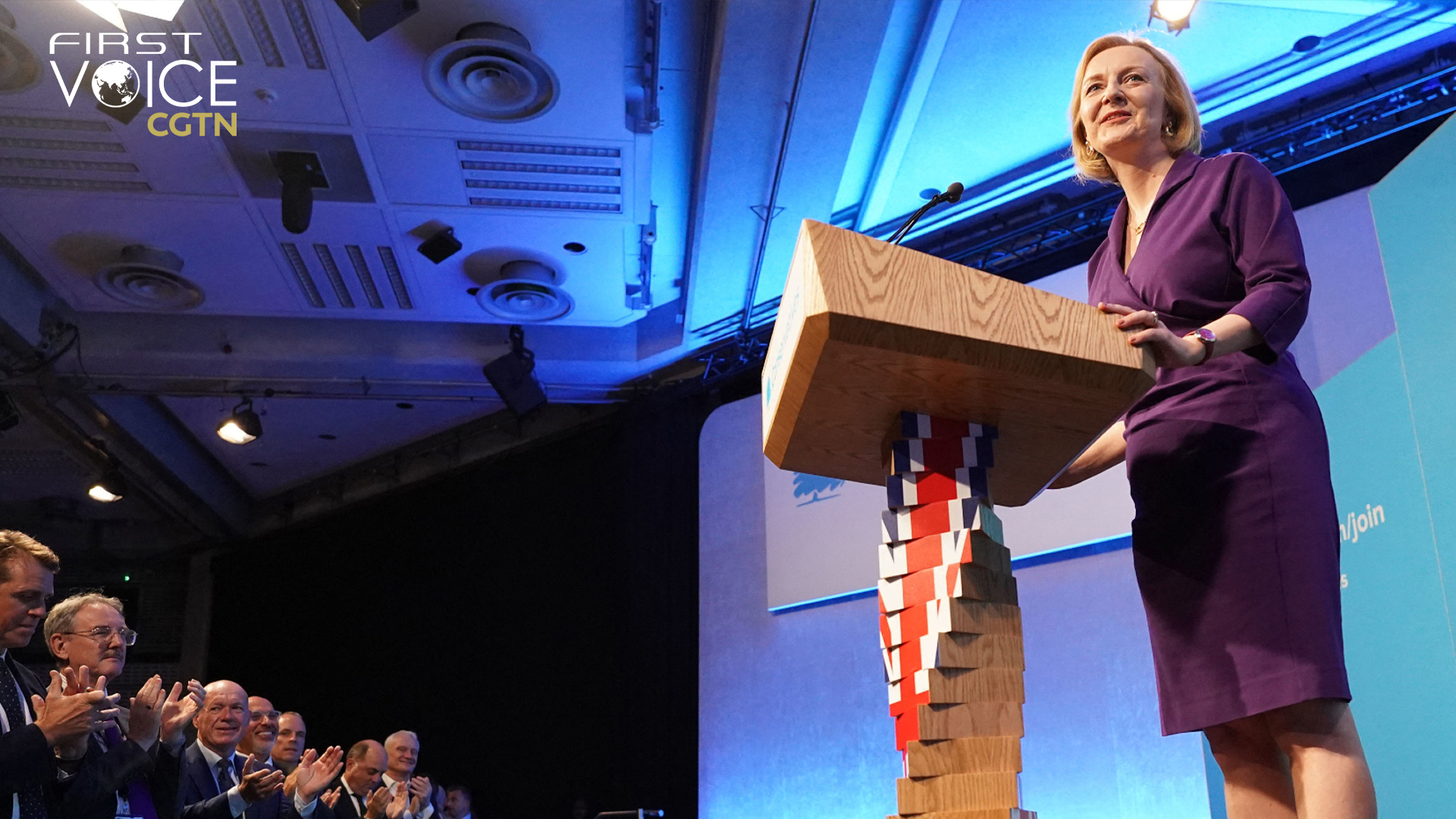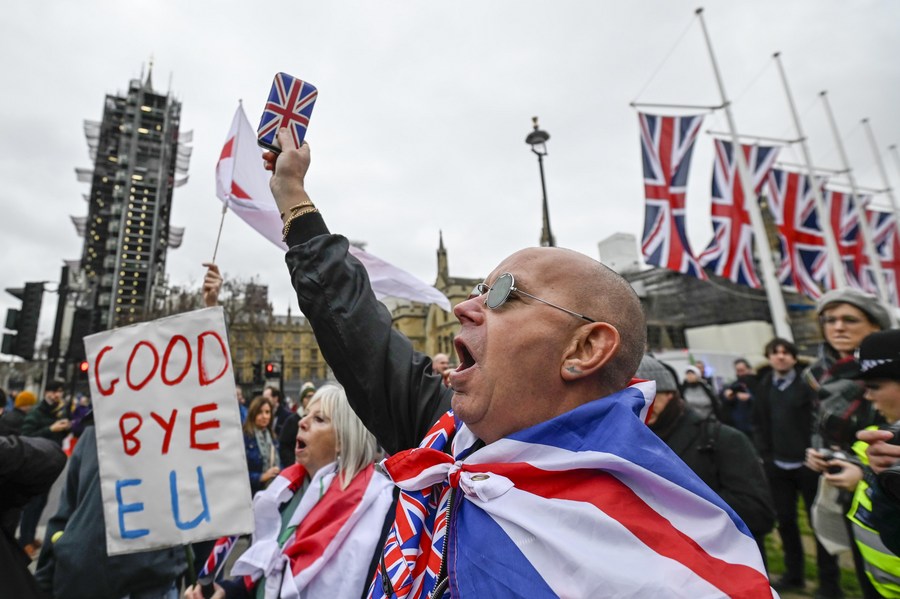
Editor's note: CGTN's First Voice provides instant commentary on breaking stories. The daily column clarifies emerging issues and better defines the news agenda, offering a Chinese perspective on the latest global events.
Former UK Foreign Secretary Liz Truss won the Conservative Party leadership contest on September 5, officially replacing Boris Johnson as the UK's Prime Minister on September 6, and becoming the Conservative Party's fourth PM in seven years.
For those who seek a better China-UK relationship, the road ahead under Truss could be bumpier than before.
Under her tenure as the UK's Foreign Secretary, Truss has already given us a taste of what her style could be like. She has been a fierce anti-China hawk within the government and on the international stage. According to a report by POLITICO, Truss made the decision to cut funding for the Great Britain China Centre, an agency of the Foreign Office aimed at promoting "mutual trust and understanding between UK and China." She had suggested that the UK should arm China's Taiwan region so that "it has the ability to defend itself" against the Chinese mainland. She has been in lockstep with the U.S.' Indo-Pacific strategy, joining it and Australia in forming AUKUS, and declared the need for building a "network of liberty" – an overused rhetoric in recent years that has become synonymous with attacking China.
And just recently, there has been a widely circulated report by media outlets like The Times and Daily Mail saying that Truss is expected to make an unprecedented move by classifying China as a "threat" to the UK's national security once she becomes the prime minister.
Hostility between China and the UK is not destined. Truss has a history of being a flip-flopper. She was a staunch opponent to Brexit before, claiming that the "European market is so precious because we share the same regulations." And then she became a hardline Brexiter, saying that "EU regulations hinder our businesses and this has to change." Whether she'd consider China a "threat" at one minute and a friend the next is open for discussion.

Supporters of a pro-Brexit group celebrate at Parliament Square in London, Britain, on Jan. 31, 2020. /Xinhua
Supporters of a pro-Brexit group celebrate at Parliament Square in London, Britain, on Jan. 31, 2020. /Xinhua
But the chances of her flip-flopping on China is slim. She has spent the past years expanding the UK's footprint to take on China. She flatly rejected NATO's Atlantic-centered role and called for a "global NATO." In Asia, she has called on the UK's relationship with Malaysia, Thailand and Indonesia to be "turbo-charged." She has also been developing greater depth of cooperation between the UK and ASEAN. Combined with her strong anti-China rhetoric and the Margaret-Thatcher-like image she has cultivated, it'd be politically dangerous for someone with an Iron-Lady-complex to backdown to China.
Anyone looking at the China-UK relationship should expect rocky roads ahead, but should also do so with an optimistic view about the long-term future. As reported by The Telegraph in February, China-UK trade relations have been surging despite the heated political rhetoric. In 2021, nearly one in seven of the UK's imports came from China. China is now the UK's third largest trading partner, accounting for about 7.5 percent of the UK's trade. According to a survey carried out by the British Chamber of Commerce in China, 88 percent of UK companies are either optimistic or neutral towards developing businesses in China. Chinese students also account for the largest source of foreign students studying in the UK.
And Truss is taking over at a time of great domestic distress. The chief business economist at S&P Global Market Intelligence – Chris Williamson – told the Guardian that the "incoming prime minister will be dealing with an economy that is facing a heightened risk of recession." The Organization for Economic Cooperation and Developing predicts that the UK economy will record zero growth in 2023 with 7.4 percent inflation. Average disposable income for households will fall roughly 3000 pounds to 3500 pounds a year by 2024, according to the UK think tank Resolution Foundation.
A YouGov snap poll shows that only 14 percent of British people believe Truss will be a better PM than Boris Johnson. 27 percent said she will be worse. Her opponent Rishi Sunak, though defeated by Truss, had the backing of the majority of Tory MPs, but only lost the race because of his failure to generate enough vote among the 160,000-plus Tory members. Even then, he had received more than 42 percent of Conservative votes. Truss had won the race, but her power is far from being secured.
If Truss wants to stay in Downing Street longer than her predecessors, ideologues' votes aren't enough. Picking fights with China won't do any good to change the UK's domestic predicaments, and ultimately the people's judgement will rest upon how much improvement she brings to their lives. But when it comes to the China-UK relationship, Liz Truss is not a force for stability. Her every move needs to be watched, carefully.
(If you want to contribute and have specific expertise, please contact us at opinions@cgtn.com. Follow @thouse_opinions on Twitter to discover the latest commentaries in the CGTN Opinion Section.)

